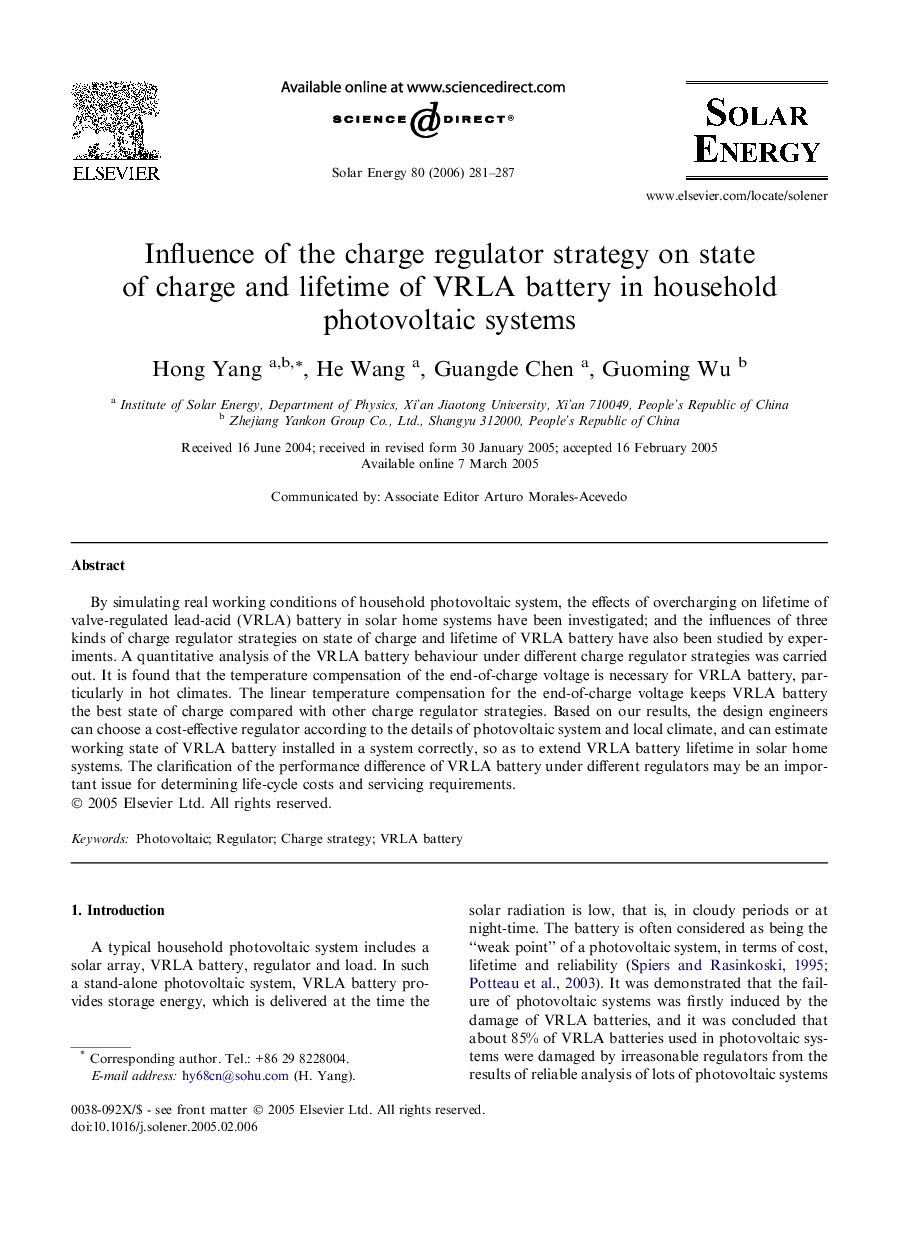| Article ID | Journal | Published Year | Pages | File Type |
|---|---|---|---|---|
| 1552401 | Solar Energy | 2006 | 7 Pages |
By simulating real working conditions of household photovoltaic system, the effects of overcharging on lifetime of valve-regulated lead-acid (VRLA) battery in solar home systems have been investigated; and the influences of three kinds of charge regulator strategies on state of charge and lifetime of VRLA battery have also been studied by experiments. A quantitative analysis of the VRLA battery behaviour under different charge regulator strategies was carried out. It is found that the temperature compensation of the end-of-charge voltage is necessary for VRLA battery, particularly in hot climates. The linear temperature compensation for the end-of-charge voltage keeps VRLA battery the best state of charge compared with other charge regulator strategies. Based on our results, the design engineers can choose a cost-effective regulator according to the details of photovoltaic system and local climate, and can estimate working state of VRLA battery installed in a system correctly, so as to extend VRLA battery lifetime in solar home systems. The clarification of the performance difference of VRLA battery under different regulators may be an important issue for determining life-cycle costs and servicing requirements.
